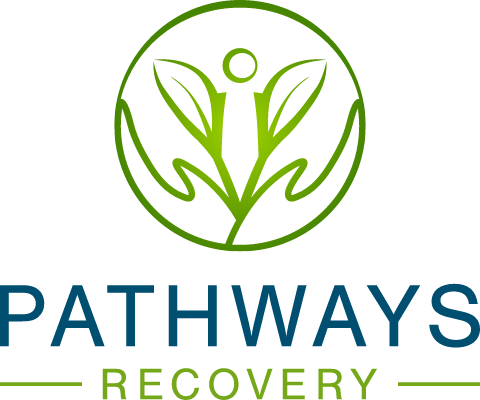Addiction Recovery Counseling
Quitting the habit of prescription drugs, street drugs or alcohol or any other addiction is a major accomplishment. You have a lot to be proud of, yet you still have some work ahead of you. Detox is only the first step of a long process through which you’ll learn to manage cravings and avoid using substances to avoid emotional discomfort or pain.
Counseling is a critical piece of substance use disorder (SUD) treatment for most people. Cognitive behavioral therapy, trauma therapy, family counseling, and other types of therapy can help you remain sober. Psychotherapy can also address other mental health disorders that often play a role in an addiction cycle.
Why You Need Counseling
An addictive cycle of abusing substances is generally rooted in some type of unresolved emotional pain that may be from trauma, PTSD or attachment disorder. Even after detox, when your body is no longer dependent, you’re at high risk for relapse. Certain psychological and social factors can be powerful triggers that lead to relapse:
- Stress, especially sudden life stresses
- Cues in the environment, like visiting a specific triggering place
- Social networks, like spending time with friends who continue to use or trigger emotional pain.
These things can create a strong ongoing urge to use substances again. Therapy for addiction helps you escape cravings and learn to manage what life throws at you without drugs or alcohol.
Types of Therapy We Offer
Cognitive Behavioral Therapy (CBT)
Cognitive behavioral therapy (CBT) is a short-term form of psychotherapy directed at present-time issues and based on the idea that the way an individual thinks and feels affects the way he or she behaves. The focus is on problem solving, and the goal is to change clients’ thought patterns in order to change their responses to difficult situations. A CBT approach can be applied to a wide range of mental health issues and conditions and is provided by our Masters level clinicians.
Dialectical Behavior Therapy (DBT)
Dialectical behavior therapy (DBT) provides clients with new skills to manage painful emotions and decrease conflict in relationships. DBT specifically focuses on providing therapeutic skills in four key areas. First, mindfulness focuses on improving an individual’s ability to accept and be present in the current moment. Second, distress tolerance is geared toward increasing a person’s tolerance of negative emotion, rather than trying to escape from it. Third, emotion regulation covers strategies to manage and change intense emotions that are causing problems in a person’s life. Fourth, interpersonal effectiveness consists of techniques that allow a person to communicate with others in a way that is assertive, maintains self-respect, and strengthens relationships.
DBT was originally developed to treat borderline personality disorder. However, research shows that DBT has also been used successfully to treat people experiencing depression, bulimia, binge-eating, bipolar disorder, post-traumatic-stress disorder, and substance abuse. DBT skills are thought to have the capability of helping those who wish to improve their ability to regulate emotions, tolerate distress and negative emotion, be mindful and present in the given moment, and communicate and interact effectively with others.

Eye Movement Desensitization and Reprocessing Therapy (EMDR)
EMDR is a psychotherapy that enables people to heal from the symptoms and emotional distress that are the result of disturbing life experiences. Repeated studies show that by using EMDR therapy people can experience the benefits of psychotherapy that once took years to make a difference. It is widely assumed that severe emotional pain requires a long time to heal. EMDR therapy shows that the mind can in fact heal from psychological trauma much as the body recovers from physical trauma. When you cut your hand, your body works to close the wound. If a foreign object or repeated injury irritates the wound, it festers and causes pain. Once the block is removed, healing resumes. EMDR therapy demonstrates that a similar sequence of events occurs with mental processes. The brain’s information processing system naturally moves toward mental health. If the system is blocked or imbalanced by the impact of a disturbing event, the emotional wound festers and can cause intense suffering. Once the block is removed, healing resumes. Using the detailed protocols and procedures learned in EMDR therapy training sessions, clinicians help clients activate their natural healing processes.
EMDR is a unique, nontraditional form of psychotherapy designed to diminish negative feelings associated with memories of traumatic events. Unlike most forms of talk therapy, EMDR focuses less on the traumatic event itself and more on the disturbing emotions and symptoms that result from the event. Treatment includes a hand motion technique used by the therapist to guide the client’s eye movements from side to side, similar to watching a pendulum swing. EMDR is a controversial intervention, because it is unclear exactly how it works, with some psychologists claiming it does not work. Some studies have shown, however, that EMDR is effective for treating certain mental-health conditions.
When It’s Used
EMDR is generally used by specially trained clinicians as a therapeutic modality to help individuals resolve trauma and PTSD.
Although most research into EMDR has examined its use in people with PTSD, EMDR is sometimes used experimentally to treat many other psychological problems. They include:
- Panic attacks
- Eating disorders
- Addictions
- Anxiety, such as discomfort with public speaking or dental procedures
Brainspotting
Another effective therapeutic modality for trauma and PTSD that requires specially trained therapists who have this specific certification. Several of our therapists at Pathways Recovery addiction treatment center are trained in Brainspotting.
Brainspotting is a powerful, focused treatment method that works by identifying, processing and releasing core neurophysiological sources of emotional/body pain, trauma, dissociation and a variety of other challenging symptoms. Brainspotting is a simultaneous form of diagnosis and treatment, enhanced with Biolateral sound, which is deep, direct, and powerful yet focused and containing.

